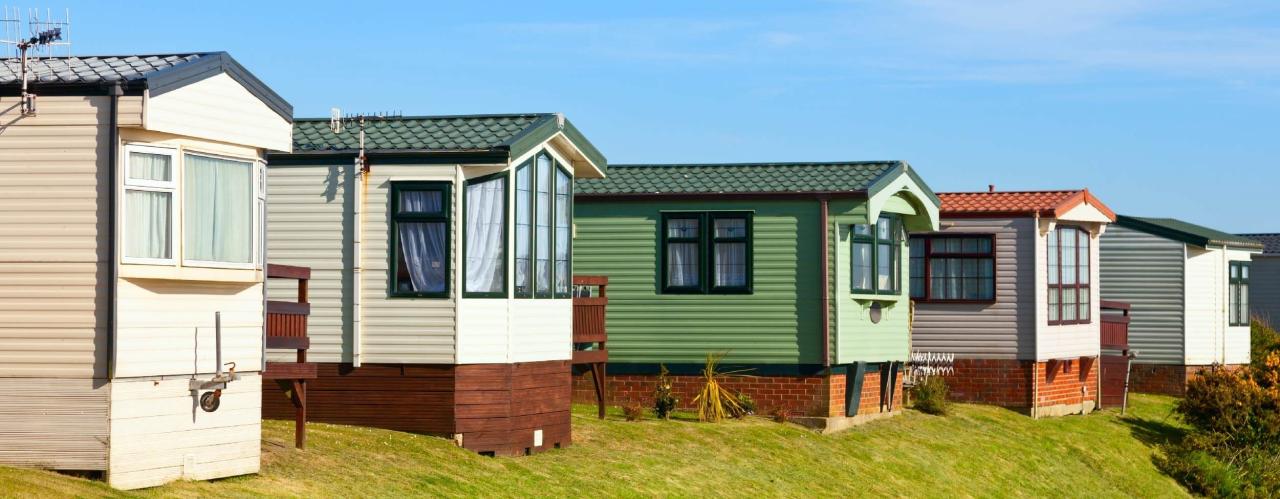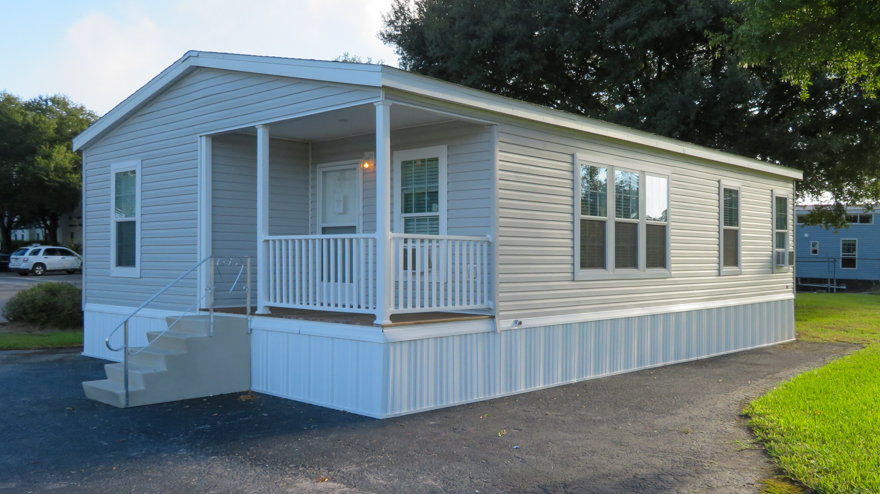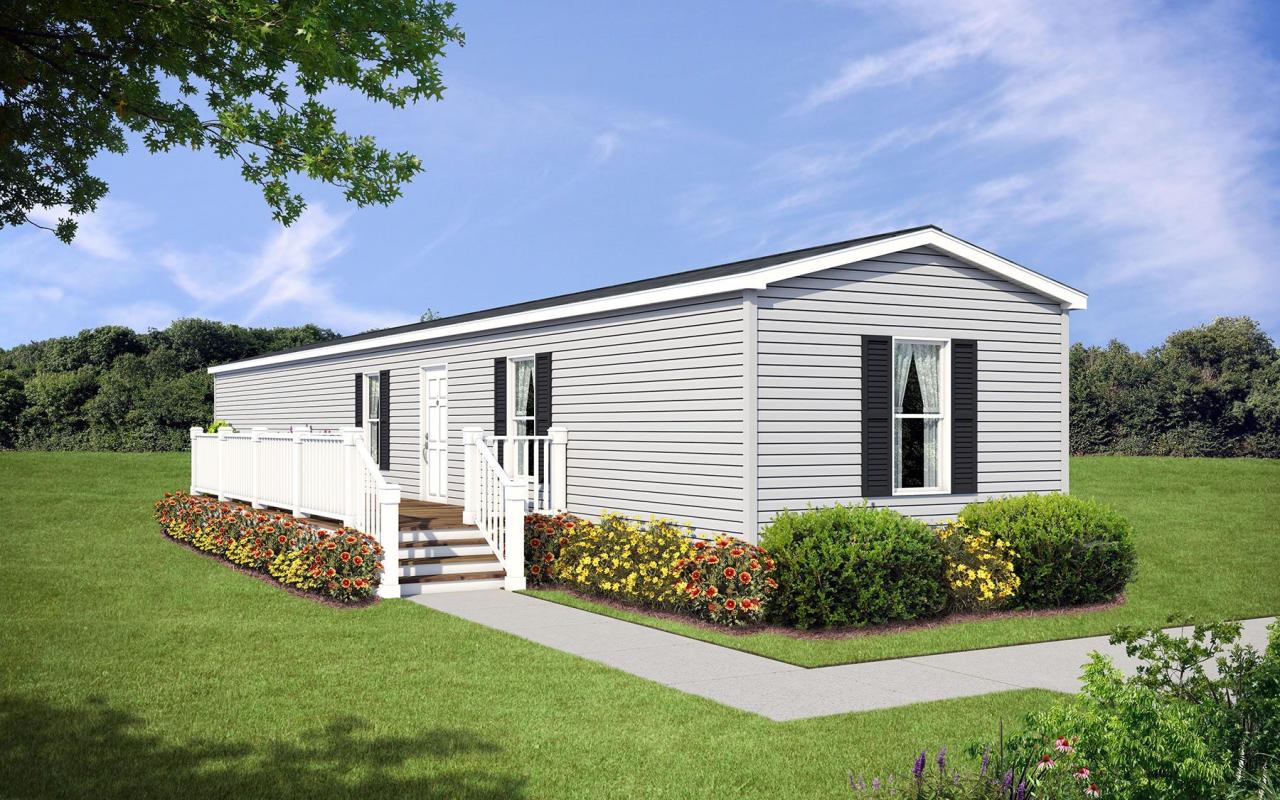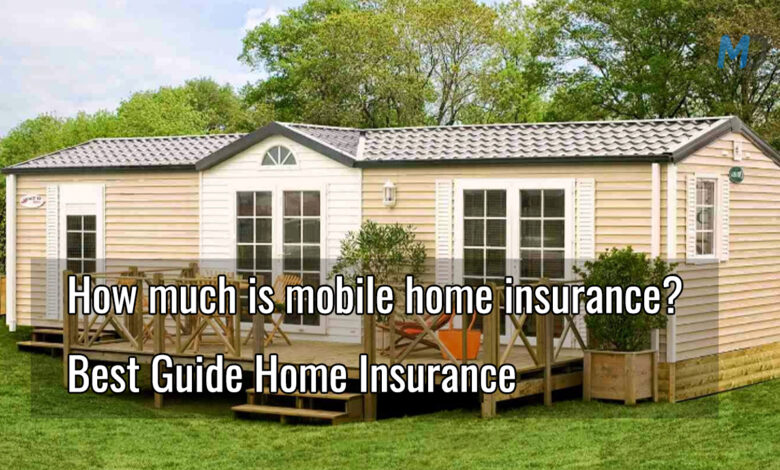The world of mobile home insurance is a complex landscape, demanding a unique approach compared to traditional home insurance. From understanding the distinct coverage needs of mobile homes to navigating the intricate claims process, this guide serves as your comprehensive roadmap. It explores the various types of policies available, the factors influencing premium costs, and the crucial considerations for finding the right insurer.
Beyond the basics, we delve into essential coverage options, including dwelling, personal property, and liability, while also highlighting the value of optional coverage like flood insurance and windstorm protection. We provide insights into the claims process, discuss the impact of location on insurance rates, and offer tailored advice for senior citizens.
Mobile Home Insurance Basics
Mobile home insurance is a specialized type of coverage designed to protect your manufactured home and its contents from various risks. While it shares similarities with traditional homeowners insurance, there are unique aspects to consider due to the construction and placement of mobile homes.
Types of Mobile Home Insurance Policies
Mobile home insurance policies typically cover the structure of the home, its contents, and liability in case of accidents or injuries on the property. Here are the common types of mobile home insurance policies:
- Standard Coverage: This policy provides basic protection against perils like fire, windstorms, hail, and vandalism. It usually covers the home’s structure, attached structures, and personal property.
- Comprehensive Coverage: This policy expands on standard coverage by adding protection against a wider range of perils, including theft, falling objects, and damage caused by water.
- Replacement Cost Coverage: This policy covers the full cost of replacing your mobile home and its contents, regardless of depreciation. This is a more expensive option but provides peace of mind in case of a major loss.
- Actual Cash Value Coverage: This policy covers the actual cash value of your mobile home and its contents, which is the replacement cost minus depreciation. This is a less expensive option, but you will receive less compensation if your home is damaged or destroyed.
Factors Affecting Mobile Home Insurance Premiums
Several factors can influence the cost of your mobile home insurance premiums. These factors include:
- Location: Homes in areas prone to natural disasters, such as hurricanes, earthquakes, or floods, will generally have higher premiums.
- Age and Condition of the Home: Older homes with outdated features or poor maintenance may have higher premiums than newer, well-maintained homes.
- Coverage Amount: The amount of coverage you choose will directly affect your premium. Higher coverage amounts generally mean higher premiums.
- Deductible: A higher deductible will typically result in lower premiums. However, you will have to pay more out of pocket in the event of a claim.
- Credit Score: In some states, insurers may use your credit score to determine your premium. A higher credit score generally leads to lower premiums.
- Safety Features: Homes with safety features, such as smoke detectors, fire extinguishers, and burglar alarms, may qualify for discounts.
Finding the Right Mobile Home Insurer

Protecting your mobile home with the right insurance is crucial. It ensures financial security in case of unexpected events like fire, theft, or natural disasters. But with numerous insurers offering various plans, finding the best fit can be overwhelming. This guide will help you navigate the process and choose a reputable and reliable mobile home insurance provider.
Factors to Consider When Choosing a Mobile Home Insurance Provider
Choosing a mobile home insurance provider involves several factors. Understanding these aspects helps you make an informed decision.
- Financial Stability: Look for companies with a strong financial rating, indicating their ability to pay claims. Reputable rating agencies like A.M. Best, Standard & Poor’s, and Moody’s provide financial strength ratings for insurance companies.
- Customer Service: A responsive and helpful customer service team is crucial. Look for insurers with positive customer reviews and a reputation for prompt claim processing and resolution.
- Coverage Options: Compare the different coverage options offered by various insurers. Consider factors like dwelling coverage, personal property coverage, liability coverage, and additional living expenses coverage.
- Deductibles: Higher deductibles generally result in lower premiums. Choose a deductible you can comfortably afford in case of a claim.
- Discounts: Explore available discounts, such as those for safety features, multiple policies, or loyalty programs.
- Reputation: Research the insurer’s reputation in the industry. Check for any complaints or negative reviews on websites like the Better Business Bureau or the National Association of Insurance Commissioners (NAIC).
Comparing Mobile Home Insurance Providers
After considering the factors above, compare quotes from multiple insurers. This allows you to assess the different coverage options, premiums, and customer service levels.
Top Mobile Home Insurance Providers
The mobile home insurance market is competitive, with several reputable providers. Here are some top contenders known for their strengths:
- State Farm: Known for its extensive network of agents, strong financial stability, and comprehensive coverage options.
- Nationwide: Offers a wide range of discounts, including those for safety features and multiple policies.
- Allstate: Provides a variety of coverage options and is known for its strong customer service.
- Farmers Insurance: Offers customizable coverage options and discounts for various factors, including home safety features and multiple policies.
- USAA: Exclusively serves military members and their families, known for its excellent customer service and competitive rates.
Essential Coverage Options
Mobile home insurance policies offer various coverage options to safeguard your investment and protect you from financial hardship. Understanding the different types of coverage and their implications is crucial for making informed decisions.
Dwelling Coverage
Dwelling coverage protects the physical structure of your mobile home, including its attached additions, against various perils like fire, windstorms, and hail. This coverage helps pay for repairs or replacement costs if your home is damaged or destroyed. It’s essential to choose adequate dwelling coverage to ensure sufficient funds are available for rebuilding or replacing your home in case of an insured event.
Personal Property Coverage
Personal property coverage protects your belongings inside your mobile home, including furniture, appliances, clothing, and other personal items. This coverage helps reimburse you for the cost of replacing or repairing damaged or stolen belongings. It’s crucial to choose the appropriate level of personal property coverage to ensure your valuable possessions are adequately protected.
Liability Coverage
Liability coverage protects you from financial losses arising from lawsuits filed against you due to injuries or property damage caused by you or members of your household. This coverage helps cover legal defense costs and any settlements or judgments awarded against you. Liability coverage is crucial for safeguarding your financial well-being in the event of a lawsuit.
Additional Coverage Considerations

While basic mobile home insurance coverage is essential, exploring additional coverage options can significantly enhance your protection and peace of mind. These optional coverages address specific risks and provide financial support in unexpected situations.
Flood Insurance
Flood insurance is a crucial consideration for mobile home owners, particularly those residing in areas prone to flooding. Standard mobile home insurance policies typically exclude flood damage, leaving you vulnerable to significant financial losses. Flood insurance is a separate policy provided by the National Flood Insurance Program (NFIP) or private insurers.
Flood insurance covers damage caused by the overflow of inland or tidal waters, as well as mudslides and erosion.
It’s important to note that flood insurance policies typically have a 30-day waiting period before coverage takes effect. This waiting period underscores the importance of securing flood insurance well in advance of any potential flooding events.
Windstorm Protection
Windstorm protection is another essential coverage for mobile home owners, especially those residing in areas prone to hurricanes and other severe weather events. While standard mobile home insurance policies typically cover wind damage, windstorm protection offers additional coverage for specific wind-related risks.
Windstorm protection provides enhanced coverage for damage caused by high winds, including roof damage, window breakage, and structural damage.
It’s crucial to consult with your insurance agent to determine the appropriate level of windstorm protection coverage for your specific needs and location.
Personal Injury Protection (PIP)
Personal injury protection (PIP) coverage, also known as no-fault insurance, provides financial support for medical expenses and lost wages following an accident, regardless of fault. This coverage can be particularly valuable for mobile home owners who may be injured while on their property or while using their mobile home.
PIP coverage typically covers medical expenses, lost wages, and other related expenses, up to a certain limit.
While not mandatory in all states, PIP coverage can provide essential financial support during a difficult time.
Medical Payments Coverage
Medical payments coverage, also known as MedPay, offers financial assistance for medical expenses incurred by you or your passengers following an accident, regardless of fault. This coverage can be particularly beneficial for mobile home owners who may be injured while on their property or while using their mobile home.
MedPay coverage typically covers medical expenses for you, your passengers, and any other individuals injured on your property, up to a specified limit.
While not mandatory in all states, MedPay coverage can provide valuable financial support in the event of an accident.
Replacement Cost Value vs. Actual Cash Value
Mobile home insurance policies typically offer coverage for replacement cost value (RCV) or actual cash value (ACV). Understanding the difference between these two options is crucial for choosing the right coverage.
RCV coverage pays for the full cost of replacing your mobile home with a new one of similar kind and quality, regardless of depreciation. ACV coverage, on the other hand, considers depreciation and pays only for the current market value of your mobile home.
RCV coverage is generally more expensive than ACV coverage but provides greater financial protection in the event of a total loss. ACV coverage is less expensive but may leave you with a significant financial gap if your mobile home is severely damaged or destroyed.
Mobile Home Insurance Claims Process
Navigating the claims process after a covered event can be stressful, but understanding the steps and your rights can make the process smoother. This section provides a guide for filing a claim with your mobile home insurance provider, offers tips for documenting damages and communicating effectively, and sheds light on common claim denial reasons and how to appeal them.
Filing a Claim
When a covered event occurs, you must promptly notify your insurance company. Here’s a step-by-step guide:
- Contact Your Insurance Company: Call your insurance company immediately after the event. Provide them with details like the date, time, and location of the incident.
- File a Claim: Follow the instructions provided by your insurer to file a claim. This typically involves completing a claim form, providing documentation, and potentially speaking with an adjuster.
- Cooperate with the Adjuster: The insurance company will assign an adjuster to assess the damage. Cooperate fully with the adjuster, allowing them access to your mobile home and providing all necessary information.
- Document the Damages: Take detailed photographs and videos of the damage, including close-ups of any injuries, broken items, and structural issues. Maintain a detailed record of any expenses incurred due to the event, such as temporary housing or repairs.
- Review and Negotiate: Once the adjuster has completed their assessment, they will present you with a settlement offer. Review the offer carefully and ensure it covers all of your losses. If you disagree with the offer, you can negotiate with the adjuster or contact your insurance company directly.
Documenting Damages
Documentation is crucial for supporting your claim and ensuring you receive fair compensation. Here are some tips:
- Take Clear Photos and Videos: Capture detailed images of the damage, including close-ups of specific areas.
- Create a Detailed Inventory: List all damaged or lost items, including their estimated value and purchase dates. If possible, provide receipts or other proof of ownership.
- Maintain Records of Expenses: Keep track of any expenses incurred as a result of the covered event, such as temporary housing, repair costs, and lost wages.
Communicating with the Insurance Company
Effective communication is essential throughout the claims process. Here are some key tips:
- Be Prompt and Clear: Respond to your insurance company’s requests for information promptly and provide clear, concise answers.
- Document All Interactions: Keep a record of all phone calls, emails, and letters with your insurance company.
- Understand Your Policy: Familiarize yourself with the terms and conditions of your mobile home insurance policy, including coverage limits and exclusions.
Claim Denial Reasons and Appeals
While insurance companies are generally obligated to pay valid claims, there are instances where claims may be denied. Common reasons for claim denial include:
- Lack of Coverage: The event causing the damage may not be covered under your policy.
- Policy Violation: You may have violated a provision in your policy, such as failing to maintain your mobile home or not reporting the event promptly.
- Fraudulent Claim: The insurance company may suspect that you are making a false or exaggerated claim.
If your claim is denied, you have the right to appeal the decision. Here’s how to proceed:
- Request a Review: Contact your insurance company and formally request a review of the denial.
- Provide Additional Documentation: Submit any additional information that supports your claim, such as receipts, repair estimates, or witness statements.
- Consider Mediation: If you are unable to reach a resolution with your insurance company, you may consider mediation.
Mobile Home Insurance and Location
Your mobile home’s location significantly impacts your insurance premiums. Factors such as the risk of natural disasters, crime rates, and local regulations can influence how much you pay for coverage. Understanding these factors can help you find the best insurance policy for your needs.
Average Mobile Home Insurance Premiums by State
Average mobile home insurance premiums can vary significantly across the United States. Here’s a table comparing average premiums in different states:
| State | Average Premium |
|—|—|
| Florida | $1,200 |
| Texas | $1,000 |
| California | $1,500 |
| New York | $800 |
Note: These figures are approximate and can vary depending on factors such as the age and condition of your mobile home, the coverage you choose, and your personal risk profile.
Impact of Geographic Location on Insurance Rates
Your location’s susceptibility to natural disasters plays a significant role in determining your insurance rates. For example, mobile homes located in areas prone to hurricanes, earthquakes, or tornadoes will generally have higher premiums than those in less hazardous regions.
Similarly, crime rates can influence insurance premiums. Mobile homes in areas with high crime rates may face higher insurance costs due to the increased risk of theft, vandalism, or other criminal activity.
Mobile Home Park Regulations and Community Standards
The regulations and community standards of your mobile home park can also impact your insurance costs. Parks with strict security measures, well-maintained infrastructure, and a history of low crime rates may offer lower insurance premiums. Conversely, parks with lax security or a history of problems may face higher insurance costs.
Mobile Home Insurance for Seniors
Senior citizens face unique challenges when it comes to securing affordable and comprehensive mobile home insurance. Factors such as age, health, and driving history can impact premiums. However, understanding the available options and strategies can help seniors navigate these challenges and find the best coverage at a reasonable price.
Insurance Options and Discounts for Seniors
Senior citizens often qualify for various insurance discounts and programs designed to make coverage more accessible. Here are some key options:
- Senior Citizen Discounts: Many insurers offer discounts specifically for senior citizens, typically based on age and driving experience. These discounts can significantly reduce premiums, making insurance more affordable.
- Bundle Discounts: Combining multiple insurance policies, such as home, auto, and health insurance, with the same insurer can lead to substantial savings. Senior citizens who bundle their policies often qualify for significant discounts.
- Loyalty Discounts: Insurers often reward long-term customers with loyalty discounts. Seniors who have maintained insurance with the same company for several years may be eligible for these discounts.
- Safety and Security Features: Installing security features like smoke detectors, fire alarms, and security systems can reduce insurance premiums. Senior citizens who prioritize safety and security can benefit from these discounts.
Challenges of Securing Affordable Insurance for Older Mobile Home Owners
While various discounts are available, securing affordable insurance for older mobile home owners can still be challenging. Several factors contribute to higher premiums:
- Age and Health: As individuals age, their risk of accidents and health issues increases, which can lead to higher insurance premiums.
- Driving History: Accidents, traffic violations, and other driving-related issues can significantly impact insurance premiums, particularly for seniors.
- Location: Mobile homes located in high-risk areas, such as those prone to natural disasters, often face higher insurance rates.
- Condition of the Mobile Home: Older mobile homes may have depreciated in value, requiring higher premiums due to the increased risk of damage or loss.
Tips for Maximizing Coverage and Minimizing Premiums for Senior Citizens
Senior citizens can take proactive steps to maximize their mobile home insurance coverage while minimizing premiums:
- Shop Around: Compare quotes from multiple insurers to find the best rates and coverage options. Online comparison tools can streamline this process.
- Maintain a Good Driving Record: Avoid accidents and traffic violations to keep premiums low. Consider defensive driving courses to enhance driving skills.
- Upgrade Security Features: Installing security features can reduce premiums and improve the overall safety of the mobile home.
- Consider Deductibles: Opting for a higher deductible can lead to lower premiums, but ensure you can afford the out-of-pocket expenses in case of a claim.
- Review Coverage Regularly: Ensure your insurance policy adequately meets your needs and consider adjusting coverage as your circumstances change.
Mobile Home Insurance and Disaster Preparedness

Mobile homes, due to their construction and mobility, can be particularly vulnerable to natural disasters. Understanding the risks and taking proactive steps to prepare your mobile home can significantly reduce potential damage and financial losses.
Preparing a Mobile Home for Disasters
Preparing your mobile home for potential disasters is crucial to minimizing damage and ensuring your safety. Here are essential steps to consider:
- Secure Your Mobile Home: Ensure your mobile home is properly anchored to the ground using tie-downs or hurricane straps. These will help prevent it from being lifted or blown away by strong winds.
- Trim Trees and Remove Debris: Regularly trim trees and remove any debris around your mobile home. This will help prevent damage from falling branches or flying objects.
- Secure Loose Objects: Secure loose items inside and outside your mobile home. This includes furniture, appliances, and other objects that could become projectiles in high winds.
- Prepare an Emergency Kit: Create an emergency kit containing essential supplies like water, food, first aid supplies, a flashlight, batteries, and a weather radio.
- Develop an Evacuation Plan: Plan an evacuation route and designate a safe place to go in case of an emergency. Make sure everyone in your household knows the plan and how to contact each other.
- Store Important Documents: Store important documents, such as insurance policies, identification, and financial records, in a waterproof and fireproof container. Consider keeping copies in a safe location off-site.
The Role of Insurance in Disaster Mitigation
Mobile home insurance plays a vital role in mitigating financial losses from natural disasters. It can help cover costs related to:
- Damage to the Mobile Home: Insurance can cover repairs or replacement of the mobile home itself if it is damaged or destroyed by a covered event.
- Personal Property: Insurance can also cover the loss or damage of personal belongings inside the mobile home.
- Living Expenses: If you are unable to live in your mobile home due to damage, your insurance may cover temporary living expenses, such as hotel stays or rental costs.
Government Assistance Programs
Various government assistance programs are available to help disaster victims. These programs may provide financial assistance, temporary housing, and other resources. Some examples include:
- FEMA (Federal Emergency Management Agency): FEMA provides financial assistance for housing, repairs, and other disaster-related expenses.
- Small Business Administration (SBA): The SBA offers low-interest loans to homeowners and businesses affected by disasters.
- State and Local Programs: Many states and local governments have their own disaster relief programs. Contact your local emergency management agency or state government website for more information.
Mobile Home Insurance and Technology
Technology is rapidly transforming the mobile home insurance industry, offering new ways for policyholders to shop for coverage, manage claims, and understand their risks. From online platforms to mobile apps, the digital revolution is making mobile home insurance more accessible, efficient, and personalized.
Online Platforms and Mobile Apps
The rise of online platforms and mobile apps has revolutionized the way people shop for and manage their insurance. These platforms provide a convenient and transparent way to compare quotes from multiple insurers, purchase policies online, and access policy documents and claim information.
- Policygenius: This platform allows users to compare quotes from multiple insurers, including mobile home insurance providers. It offers a user-friendly interface and provides personalized recommendations based on individual needs.
- Lemonade: This company uses artificial intelligence (AI) to provide instant quotes and policy issuance. It offers a mobile-first approach and aims to simplify the claims process through its chatbot technology.
- Insurify: This platform aggregates quotes from multiple insurers and allows users to compare prices, coverage options, and customer reviews. It also offers a mobile app for convenient access on the go.
Data Analytics and Predictive Modeling
Insurers are increasingly leveraging data analytics and predictive modeling to assess risks and set premiums more accurately. By analyzing historical data on mobile home claims, location factors, and other relevant variables, insurers can identify patterns and predict future claim probabilities.
“Data analytics is helping insurers develop more sophisticated risk assessment models, leading to more accurate and fair pricing.”
- Risk Segmentation: Insurers can use data analytics to segment policyholders into different risk groups based on factors like location, age of the mobile home, and credit score. This allows them to offer tailored premiums that reflect the specific risks associated with each group.
- Fraud Detection: Predictive modeling can help insurers identify potential fraudulent claims by analyzing patterns in claim data and comparing it to historical trends. This helps reduce insurance costs and protect legitimate policyholders from unfair premium increases.
- Personalized Recommendations: Data analytics can also be used to provide personalized recommendations to policyholders, such as suggesting additional coverage options based on their individual needs and risk profile.
End of Discussion

In an increasingly digital world, the mobile home insurance industry is embracing technology, leveraging online platforms and mobile apps to simplify the insurance shopping and claims management process. This guide aims to equip you with the knowledge and resources necessary to make informed decisions, ensuring that you have the right insurance coverage to protect your mobile home investment.

